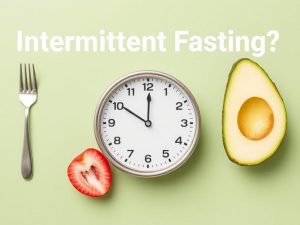The Truth About Intermittent Fasting

Intermittent fasting (IF) has gained immense popularity as a health trend in recent years, but what’s the truth behind it? Is it just another fad, or does it offer genuine health benefits? In this article, we’ll explore what intermittent fasting is, its potential advantages, common misconceptions, and how to approach it safely.

What Is Intermittent Fasting?
Intermittent fasting is not a diet but a pattern of eating that alternates between periods of fasting and eating. Unlike traditional diets that focus on what to eat, IF focuses on when to eat. Common methods include:
- 16/8 Method: Fasting for 16 hours and eating within an 8-hour window.
- 5:2 Diet: Eating normally for five days a week and reducing calorie intake to 500–600 on two non-consecutive days.
- Eat-Stop-Eat: Fasting for 24 hours once or twice a week.
- Alternate-Day Fasting: Alternating between fasting and eating days.
Proven Benefits of Intermittent Fasting
- Supports Weight Loss
IF helps reduce calorie intake and promotes fat burning by encouraging the body to use stored fat for energy during fasting periods. - Improves Metabolic Health
Studies show that intermittent fasting can lower insulin levels, reduce blood sugar, and improve insulin sensitivity, which benefits people with type 2 diabetes. - Boosts Brain Health
Fasting increases the production of brain-derived neurotrophic factor (BDNF), a protein that promotes brain health and cognitive function. - Promotes Cellular Repair
During fasting, the body initiates autophagy, a process that removes damaged cells and regenerates new ones, potentially reducing the risk of chronic diseases. - Increases Longevity
Research on animals suggests that intermittent fasting may extend lifespan by enhancing cellular repair and metabolic function.
Common Misconceptions About Intermittent Fasting
- “Fasting Will Make You Lose Muscle”
As long as you maintain adequate protein intake and engage in strength training, muscle loss is unlikely. - “It’s Only for Weight Loss”
While weight loss is a major benefit, IF also improves metabolic health, enhances brain function, and reduces inflammation. - “Fasting Slows Down Your Metabolism”
Short-term fasting actually boosts metabolism by increasing norepinephrine, a hormone that facilitates fat burning. - “You’ll Feel Weak and Tired”
Initial hunger and fatigue are common, but most people report increased energy and mental clarity once their bodies adjust.

Who Should Avoid Intermittent Fasting?
Although IF is generally safe for healthy individuals, it might not be suitable for everyone. Avoid IF if you:
- Are pregnant or breastfeeding.
- Have a history of eating disorders.
- Have underlying health conditions without medical supervision.
Always consult a healthcare professional before starting intermittent fasting, especially if you’re on medication or have a medical condition.
How to Get Started with Intermittent Fasting
- Choose a Method
Start with a simple approach like the 16/8 method to ease into fasting. - Stay Hydrated
Drink plenty of water during fasting periods to stay hydrated and curb hunger. - Focus on Nutrition
Break your fast with nutrient-dense meals, including lean proteins, healthy fats, and complex carbs. - Listen to Your Body
If you feel unwell or overly fatigued, adjust your fasting schedule or stop. - Be Consistent
Consistency is key to reaping the benefits of intermittent fasting.
Conclusion
Intermittent fasting is more than just a weight-loss trend; it’s a scientifically supported approach to improving overall health. However, it’s essential to understand your body’s needs, choose a method that suits your lifestyle, and consult a professional if needed. By practicing intermittent fasting mindfully, you can unlock its numerous benefits and enhance your quality of life.


